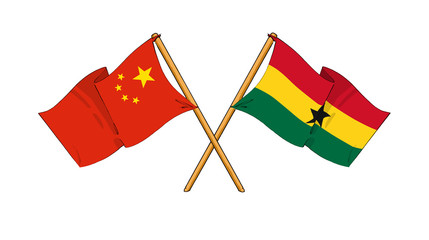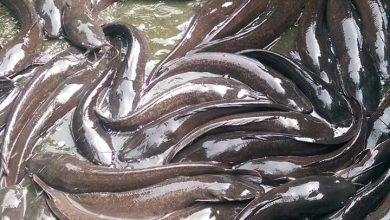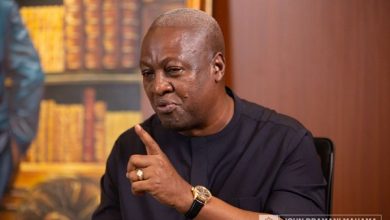
The International Monetary Fund (IMF) has provided information regarding how Ghana’s four collateralized loans from China have put the government at risk of losing future energy sales as well as a portion of the earnings from its mineral resources.
Since the year 2000, Ghana has relied on Chinese loans as a consistent source of funding for large-scale projects. Accra has accumulated close to $5 billion from at least 41 Chinese loans over the course of two decades.
With a current external debt portfolio surpassing $30 billion, Ghana is presently debt-trapped and enduring its greatest economic crisis in a generation as a result of several years of almost unrestrained borrowing.
As a result of this loan deal, China will have the authority to take Ghana’s oil, cocoa, bauxite, or even electricity sales earnings to pay off the debt should Ghana fail to honor its debt obligations.
China appears to be the most significant participant at the negotiating table in many debt negotiations taking place in the developing countries. Despite being the biggest bilateral lender in the world, it remains secretive when it comes to its lending practices and how it renegotiates with distressed clients.
The poorest nations on Earth would have to pay $35 billion in debt service to public and private creditors in 2022, 40% of which would be paid by China alone, according to the World Bank.
Ghana: Collateralized Project Loans From China
| Year | Loan Amount (Million $) | Purpose | Sector | Resource Security/collateral |
|---|---|---|---|---|
| 2007 | 306 | Bui Hydropower Project 400 MW (CL part; Total 749.6mn) | Power | Cocoa Exports |
| 2012 | 75 | Bui Hydropower Project 400MW Additional Finance Loan 1(Total 749.6mn) | Power | Cocoa Exports |
| 2012 | 76 | Bui Hydropower Project 400 MW Additional Finance Loan 2 (Total 749.6mn) | Power | Cocoa Exports |
| 2013 | 850 | Western Corridor Gas Infrastructure Project; Jubilee Oil Field | Power | Oil Exports |
| 2013 | 150 | Integrated National Security Communications Enhancement Network (ALPHA) Project – Phase I | ICT | Oil Exports |
| 2019 | 186 | Construction of Eleven Coastal Fishing Landing Sites Project | Agriculture | Oil Exports |
| 2019 | 211 | Accra Intelligent Traffic Management System and Road Completion | Transport | Oil Exports |
| 2019 | 550 | Construction/Rehabilitation of Selected Roads and Interchanges in Ghana- Phase 1 | Transport | Bauxite Exports |
According to the Fund, China held all of Ghana’s collateralized debt as of the end of 2022. This is related to four loan agreements that were signed between 2007–18 and totaled US$619 million to fund infrastructure projects. These loans have commodities output (cocoa, bauxite, and oil) and electricity sales as collateral.
“Collateralized debt is any contracted or guaranteed debt that gives the creditor the rights over an asset or revenue stream that would allow it, if the borrower defaults on its payment obligations, to rely on the asset or revenue stream to secure repayment of the debt” the IMF stated.
The IMF has stressed that “statutory funds will not be allowed to collateralize revenue streams and issue debt. No objection certificates will not be issued to any statutory fund by the governing authority in this regard.”
The Fund has also requested that government provides corresponding loans/ derivatives for all encumbered assets used as collaterals.
Source: myjoyonline





